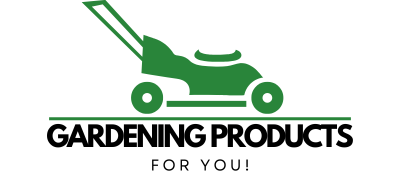
Tips For Successful Vegetable Gardening
On 2022-06-04 by Donald EdwardsVegetables are a great way to increase your daily vegetable intake. The USDA recommends that we eat five to nine servings of vegetables a day, and you can easily increase your intake by growing your own. When growing your own vegetables, though, you’ll need to be creative and use them as best as you can. Here are some ideas for vegetable gardening success. Read on to learn more. Then, start your own garden and see how much more delicious and nutritious it can be.
Consider the season and type of vegetables. Different crops require different amount of time and attention to be cultivated. For example, vegetables in winter can be different than those in summer, which means that you need to know the best time to plant and harvest them. You can choose vegetables based on what your family can consume at a given time. Also consider the size of your garden. For large gardens, you might want to invest in some motorized equipment that turns the soil between seasons. For small gardens, hand tools may be sufficient.
You can also purchase gardening publications to help you get started. The MU Extension website offers helpful information on vegetables, as well as pests and diseases that can affect your produce. You can also refer to specific Extension publications to find more information on vegetable gardening. You can also look through your seed catalog or plant tag for additional information. To avoid damaging your plant, read about vegetable-specific pests to prevent them from damaging your crops. Then, you can take a step back and enjoy your freshly-picked vegetables!
Slugs are another pest you must be wary of. Slugs, which are closely related to snails and clams, prefer moist, shady areas. They are pests of hostas because they can shear off the leaves of the plant. While they’re difficult to catch with the available insecticides, you can avoid them entirely by choosing plants that deer won’t like. Regardless of the season, you’ll likely still have to deal with damage from slugs.
Another important step in vegetable gardening is mulching. Mulching can help protect the soil from weeds and diseases and reduce the amount of water your vegetables need. Also, mulching your vegetables with natural mulches will help increase soil temperature and build organic matter, while plastic mulches will raise the temperature. Ultimately, both types of mulches will help you preserve your produce. But if you’re new to vegetable gardening, you can also consult MU Extension publications on how to preserve your vegetables. The MU Extension website offers information on preserving vegetables. These publications include GH1501 and GH1503, which cover various aspects of home canning and freezing vegetables.
Tender perennials are not cold-hardy in every zone. USDA zones 7 and above are considered cold-hardy. Choose a location that’s sheltered by buildings and / or trees in the north and west. In the Midwest, there are few restrictions on vegetable gardening, but you can still grow them. If you’re unsure about which type of vegetable to grow, you can use the American Horticultural Society’s heat zone map. Most vegetables grow fairly well in Missouri, and MU Extension publication G6201 Vegetable Planting Calendar provides planting dates for 35 varieties of vegetables.
You may also like
- Create the Ultimate Outdoor Dining Space: Garden Furniture and the Ooni Pizza Oven

- Bring the Flavour Home: Why Weber Gas BBQs Are a Top Choice in Ireland

- Ooni Pizza Oven and Patio Heater: The Ultimate Outdoor Cooking and Comfort Combo

- Outdoor Heating and Indoor Plants: Enhancing Comfort and Style in Your Home

- Creating a Pet-Friendly Home with Stylish Decor: Tips from the Pet Shop

- Exploring Ardcarne Garden Centre and Boyle Garden Centre: A Garden Lover’s Guide in Roscommon

- Creating the Perfect Home Sanctuary: Outdoor Heating and Indoor Plants

- Enhancing Your Outdoor Space: Garden Furniture and Pet Shop Essentials

- Enhance Your Outdoor Cooking Experience: Weber BBQ and Pizza Oven

- Bark United Kingdom: Your Go-To Platform for Pet Services
